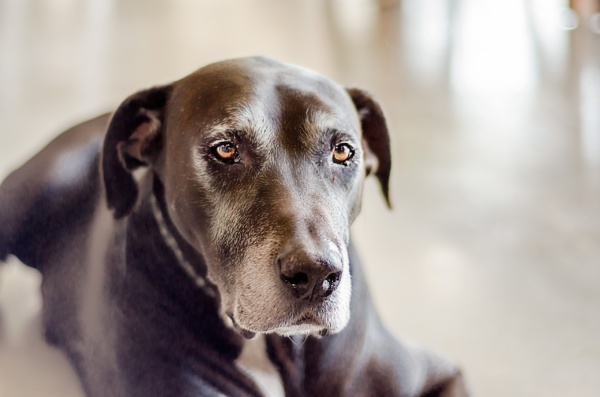
When most people decide they want to adopt a dog, they typically want a puppy or a younger dog, leaving many senior dogs to be overlooked. But there are lots of benefits to bringing an older pup into your life! They’ll most likely already be trained, their personalities are known, and it’s easier to know if they’d be a good fit for your family and lifestyle. Read on to learn more about adopting a senior dog and what you should keep in mind from our walker Melody Koney!
What are some of the best practices when adopting senior dogs?
Know that you may have to have a lot of patience. Just like people, older pups can be set in their ways and it can take them longer to adjust. For example, if their previous owner(s) were home most of the day and you work long hours, your senior pup may experience some separation anxiety. You’ll also need to make your home more accessible and comfortable with ramps, non-skid rugs, and lots of cushy spots around the house for nap time!
What are the main challenges of adopting a senior dog?
One of the biggest challenges is that your older pup may experience a lot of health problems including vision and hearing loss. Expect more frequent vet visits and making changes to their diet and exercise routines. Mobility issues are common and they can be expensive to care for since supplements, food, and supplies are essential to making their golden years great! Senior pups can experience wariness around children or other dogs and they may be less engaged. Your dog’s personality may change a bit, they may be more irritable, and their energy may be lower than a younger dog. However, please keep in mind a lot of this has to do with the breed. Some dogs may always have the energy of a young pup no matter what their age!
What are the benefits of adopting a senior dog?
By adopting a senior dog, you know a lot more about their personality and you can tell if they will be a good fit for your family. You’ll know if they get along with children, other pets, etc. They’ve matured so you’ll know if they would make a good apartment dog or if they need a big backyard to run around in. They’ll need way less training and supervision, and they’ve grown out of things such as chewing your shoes or surfing the counter! Senior pups tend to be calmer, often need less exercise and they sleep through the night!
What are supplies to keep in mind when adopting a senior dog?
- If your dog has any mobility issues, portable ramps and stairs to help your pup get into the car or onto your bed/couch are helpful.
- No-slip socks or rugs to prevent slips and falls.
- A comfy bed is always essential.
- Cooling beds and coats for hot days and therapeutic dog coats/harnesses to keep your pup warm and help with aches and pains.
- Toys to stimulate their minds and keep them active, such as puzzles and mat toys or a hide and seek plush.
- Supplements and wet food are also great for seniors’ sensitive stomachs and teeth.
- Also, a stroller might come in handy for walks!
There are many things to consider when adopting a dog of any age. It is important to take into consideration all the different elements that are significant with each breed. Most importantly, when adopting a senior dog, make sure you and your new pup will be the right fit for each other!
Windy City Paws is a Fear Free Chicago dog walker and petsitter committed to providing helpful information to Chicago dog owners through its blog.
Written for Windy City Paws by Melody Koney

